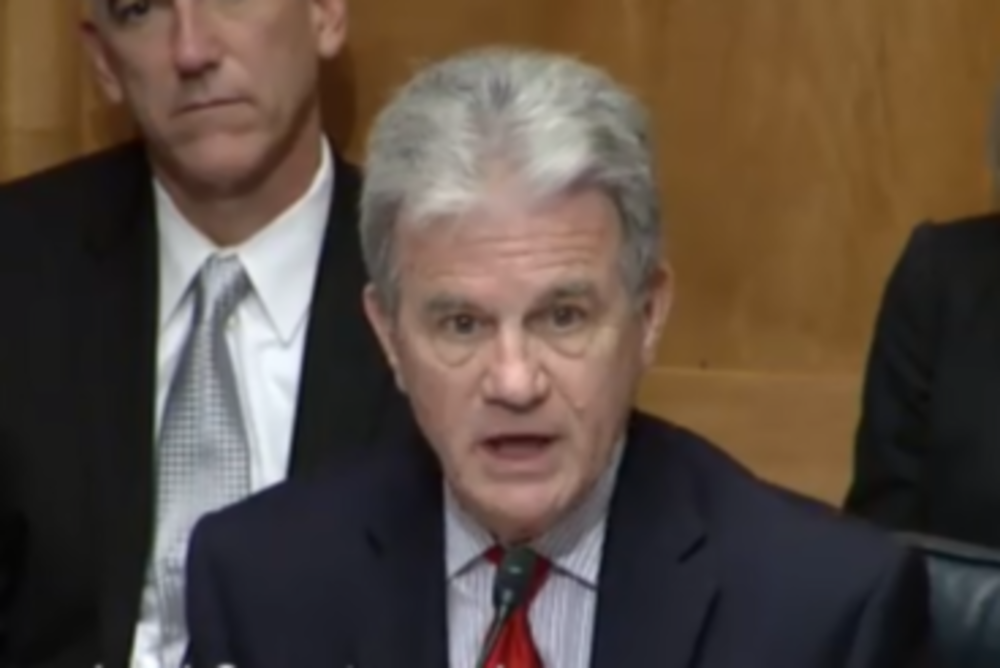In a hearing on the Postal Reform Act (PRA) in the capital yesterday, Sen. Tom Carper (D-DE), one of the crafters of the legislation, let all stakeholders know that a clock was ticking. Only hours before, the Postal Service had filed for an exigent rate increase of 4.3% with the Postal Regulatory Commission, which must decide on it before the end of the year.
“There are about 90 days before us [to pass PRA],” said Carper, chairman of the Homeland Security and Governmental Affairs committee, which held the hearing. “The [Postal] Board of Governors said upon announcing it that they would be happy if it were not to take place. I speak for most of us here that we would be happy not to see this take place.”
Most witnesses at the hearing were united in expressing that the key to eliminating the exigent increase would be to decrease the Postal Service’s obligation to pre-fund retirees’ healthcare plans, while at the same time giving it access to overpayments it has made into the Federal Employees Retirement System (FERS). Leading the charge was Postmaster General Patrick Donahoe.
“Yesterday the Postal Service announced a price increase above the rate of inflation,” Donahoe testified. “We did not want to take this step, but we had little choice due to our current financial condition. Resolving our healthcare issues will mitigate the pressure to raise prices and to take other unpalatable steps in the future, but we must fully address our healthcare costs to do so.”
President of the National Association of Letter Carriers Frederic Rolando was in full agreement with the PMG, but maintained that PRA, as it is now written, does not go far enough to ensure the long-term survival of the Post Office. “I’ll cut right to the chase,” Rolando said. “The bill fails to permanently address the mandate to pre-fund future health costs. It offers a three-year moratorium [on payments], at which point the payment will be greater than it is today. At which point the Postal Service will again default.”
The Postal Service is under obligation to pre-fund 100% of its retirees’ healthcare package and was forced to default on a $5.6 billion payment to the fund last year. Because Postal workers pay into Medicare as well as the Federal Employee Health Benefits (FEHB) program, Donahoe would rather that retirees take advantage of the Medicare coverage pool they paid into and negotiate wrap-around coverage currently denied them.
“This is more than just a budgeting issue, this is an issue of fairness,” Donahoe said. “It is fundamentally unfair to ask our employees, our retirees—and ultimately our rate payers—to continue to needlessly overpay for healthcare insurance.”
But there is resistance from many quarters in Washington to let the Postal Service and its 437,000 employees drop out of FEHB and endanger its stability. “The heart of the resolution [of the problem] is in changing the fundamentals—changes to the scope of [postal] activities, the volume, and what the postal service can charge for them,” testified Douglas Holtz-Eakin, president of American Action Forum and former director of the Congressional Budget Office. “How you think about [healthcare costs] comes down to how you think about the Post Office as part of the government or as a stand-alone entity, two extremes. If it’s part of the government pool, insurance pools…inherently involve redistribution from agency to agency. Those shifts are something everyone should accept and not worry about.”
But Sen. Tom Coburn, ranking member of the committee and co-author of PRA, pointed out that the federal government wildly overpays for employee benefits. “If you look at the private sector, the benefits per employee cost $10,589 a year. At the state and local level $16,857, and at the federal level $41,789,” Coburn said, citing research done by USA Today and his staff. “That’s a significant fact we need to bear in mind as we ask the Postal Service to be competitive, to continue to be able to deliver the magaznes,the flats, the catalogs, and not have to raise those prices. We have to be able to to give them the capability..to handle those costs in a more efficient way.”
Yet Coburn was firm about his and Sen. Carper’s resolve to include a provision within PRA that would return rate-setting authority to the Postal Service. “Our commitment is firm,” he said in his closing statements.”One, we give pricing capability to the post office. It needs to be market based. It needs to be sweet spot based. You don’t want to run away your business, but you don’t want to subsidize business to the degree greater than it has to be subsidized to keep it.”








